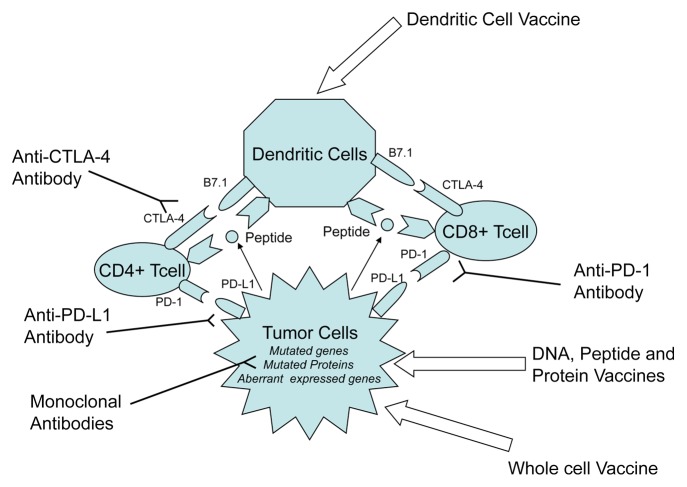Figure 1. Strategies for anticancer vaccination. Anticancer immunotherapy aims at harnessing the natural ability of the immune system to recognize and react against potentially immunogenic TAAs. DNA-, peptide-, or protein-based vaccines rely on identified immunodominant TAA epitopes to stimulate antitumor T-cell responses. DC-based vaccines attempt to exploit the pronounced ability of DCs to operate as antigen-presenting cells by isolating them, loading them with TAAs or tumor-derived mRNA ex vivo, and subsequently re-infusing them in patients. Whole cancer cell-based vaccines circumvent the for targeting specific TAAs because they rely on irradiated malignant cells as a whole. Immunotherapeutic strategies that inhibit immune checkpoints such as those mediated by CTLA4 and PD-1 reduce the barriers that vaccines must overcome to trigger therapeutically relevant anticancer immune responses.

An official website of the United States government
Here's how you know
Official websites use .gov
A
.gov website belongs to an official
government organization in the United States.
Secure .gov websites use HTTPS
A lock (
) or https:// means you've safely
connected to the .gov website. Share sensitive
information only on official, secure websites.
